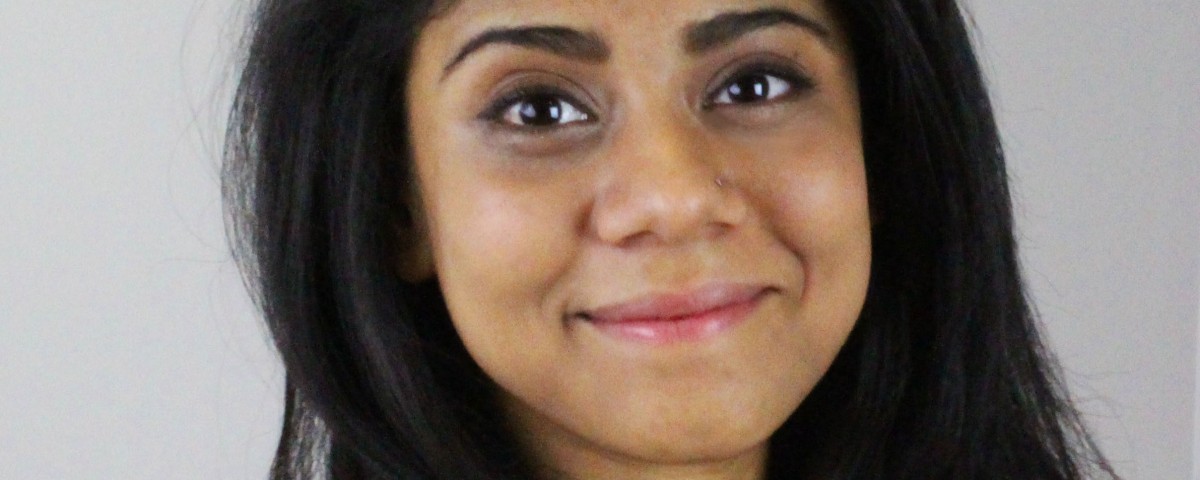Sarah Haider, Co-Founder of Ex-Muslims in North America, Shares Her Transition to Atheism and the Need to Look Up to Fathers who Champion Women’s Rights

Sarah Haider is a Pakistani-born writer and activist who grew up in Texas. A practicing Shia Muslim throughout her childhood, Sarah gradually transitioned to atheism in her teens. In 2013, she co-founded Ex-Muslims in North America, advocating for the acceptance of religious dissidents and creating local support communities for those who have left Islam.
The interview was conducted by the AHA Foundation’s senior advisor
AHA Foundation: Can you tell us a little about yourself? Your childhood, where you went to school, your profession?
Ms. Haider: I was born in Pakistan, but I was raised largely in Texas. After college, I moved to D.C, where I got involved in non-profits. In 2013 I co-founded Ex-Muslims of North America, and since then I’ve been working to promote acceptance of dissent and secularism in Muslim communities.
AHA Foundation: What was your experience growing up as the child of immigrants? I know I found myself navigating two cultures, one at home and one outside of my parent’s home and at times found it difficult to reconcile the two.
Ms. Haider: For much of my youth, I shared the views of my parents. Although I went to school with Americans whose reality was very different than my own, I was confident that my culture was superior. I was especially proud of Pakistani family values – I thought of American families as cold and unloving. As I grew closer to my American friends, my mind changed about many of their practices as theirs did about mine.
The process of integration wasn’t exactly willful, but gradually I found myself absorbing and relating to American culture and practices. The same process was, predictably, slower for my parents.
In many ways, I think my immigrant story is much like that of others who migrated from non-Western cultures. The way that my family and I differ would be the extent to which I am now public and active about my lack of belief.
I think above all, religious restrictions played a pivotal role in the clash I experienced.
AHA Foundation: You mentioned in an interview that your parents were supportive of you leaving home to attend college. Why do you think that was the case?
Ms. Haider: Initially, they weren’t happy about me leaving home to attend college – although not unheard of, at that time it was not common in my family or community. We discussed the issue for a long time – and my parents eventually acquiesced. To a large extent, I think I was lucky to be born into the family I was – my father happens to be relatively liberal. Due to the patriarchal nature of Pakistani society, the father usually has a larger say in how the children are raised. So usually, the extent to which the father is willing to be supportive has a powerful effect on the freedoms accorded to the children.
Now that I work with Ex-Muslims of North America, I know how often this isn’t the case with many families from backgrounds similar to mine.
AHA Foundation: How do your parents feel about you being atheist? Can you describe that moment when you realized you are an atheist?
Ms. Haider: Much of my journey out of religion was due to my desire to defend it. I wanted to convince less religious friends that Islam was both rational and moral, and throughout the process
I found myself losing my own faith. I had investigated the issue on many fronts – historical truth, morality, internal logic, and the more I learned the more it became clear that religion couldn’t offer me any truths about the world.
I don’t remember the exact moment I realized I was an atheist – but I do remember the first time I acknowledged it out loud. I told a Catholic friend that I thought I had lost my faith, and he unsuccessfully tried to convince me back into it.
I didn’t tell my parents about my doubts all at once – I slowly asked them the same questions that I had found to be unsatisfactorily answered, if at all, by our religion. We had many arguments about the issue, some of the most intense fights I’ve ever had with family members. It was becoming clear to everyone that this was something that had devastating implications – much of how we lived our lives was due to religious custom. If that wasn’t anchoring me to a lifestyle close to my family, what would?
AHA Foundation: You mentioned that your father played a critical role in your education and upbringing. How can we help fathers and men who, like your dad come from societies that treat women as unequal, but they choose to go against these norms and empower their daughters to fulfill their potential? How can we amplify the voices and actions of these men to create change that will positively affect the lives of other women?
Ms. Haider:
I think the first step is educating fathers to view their daughters as autonomous individuals with desires and goals of their own, not merely vessels for the family honor.
We allow the sons in our families with dignities and freedoms almost never accorded to daughters.
I’ve seen a trend of fathers who champion their daughter’s choices being criticized by their own community and extended family as aiding in their daughter’s “unruliness.” At the very least, we should look upon these men as the best of their kind, as the best example of masculinity and fatherhood.

